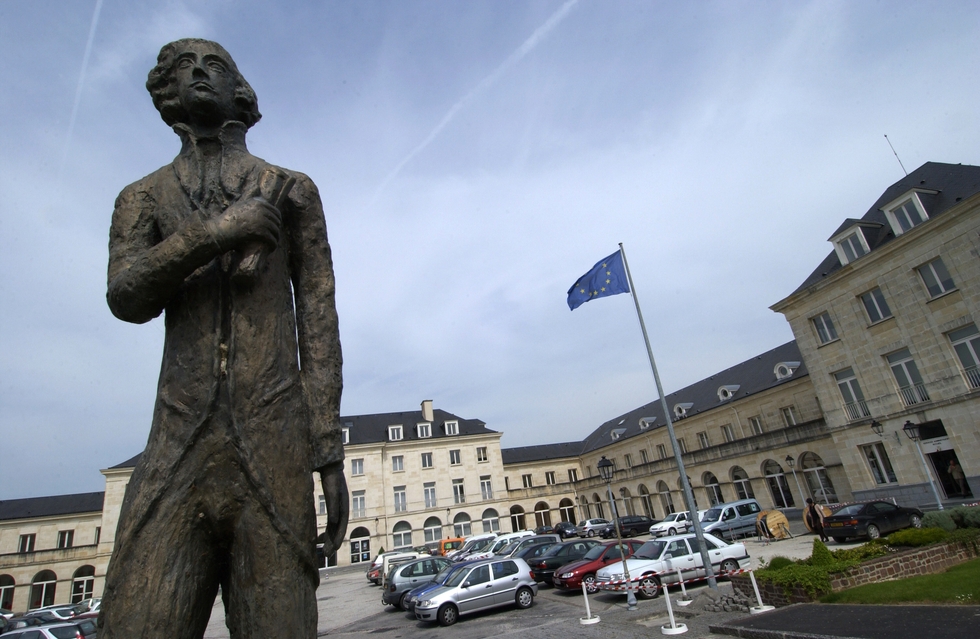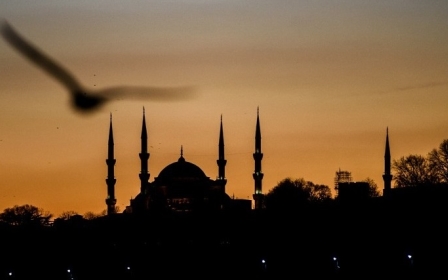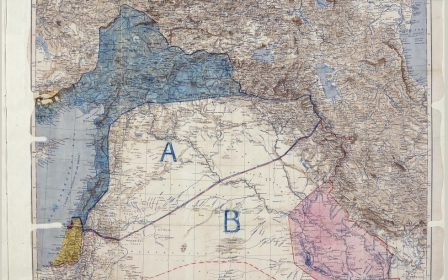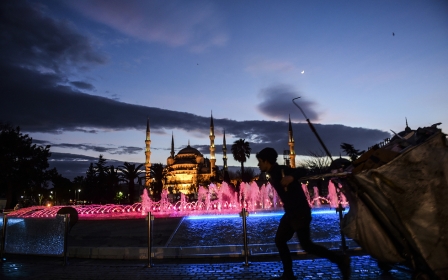Alexis de Tocqueville: The father of Western liberalism was also an advocate for colonising Algeria

“Alexis de Tocqueville is one of the greatest political thinkers of all time” - so I was told as a young law student at Erasmus University some two decades ago. It is a statement that will not surprise many people in the West. Born in Paris in 1805, the French philosopher is regarded as one of the founding fathers of liberalism. Politicians love to quote him, to such an extent that in some parts of the world he has become known as “the man who must be quoted”.
Tocqueville’s reputation is mainly due to his book Democracy in America, which has been widely translated and is still considered a classic work of political science. Based on the journey Tocqueville made through the United States in 1833, the book is an eyewitness account and hymn of praise on liberty, equality and the rule of law in the young burgeoning nation.
Having been introduced to Tocqueville as a “champion of freedom,” I remember being greatly disappointed when, years later, I found that he in other writings emerged in no uncertain terms as one of the main advocates and architects of the French conquest and colonisation of Algeria.
Tocqueville had supported the 1830 invasion of Algeria from day one. The casus belli was a diplomatic incident that happened three years prior to that: in a dispute over an unpaid debt, the Ottoman governor of Algiers had insulted the French ambassador by hitting him on the head with a fly swatter.
Reality was a whole lot less frivolous. France by 1830 had long lost most overseas territories to its great rival Britain. The treasury was running on empty, and the country faced an almost permanent threat of internal revolt. Ever since Napoleon’s failed invasion of Egypt in 1798, French politicians and intellectuals had eyed Algeria as France’s saviour.
Tocqueville was one of them. “I have no doubt that we shall be able to raise a great monument to our country's glory on the coast of Africa,” he wrote in his Second Letter on Algeria in 1837. Four years later, in May 1841, he travelled to France’s crown colony for a two-month stay, which would form the base for his Essay on Algeria published later that year.
France by then faced a serious uprising led by the tribal leader Emir Abdel Qadir. The army responded with a military novelty known as razzias: rapid incursions on towns and villages, during which soldiers were essentially given the green light to kill, rape and loot whatever they could get their hands on. Ironically, the word is derived from the (Algerian) Arabic term for a Bedouin raid.
Tocqueville wholeheartedly supported the strategy. “I have often heard men whom I respect, but with whom I do not agree, find it wrong that we burn harvests, that we empty silos, and finally that we seize unarmed men, women, and children,” he wrote in his Essay on Algeria. “These, in my view, are unfortunate necessities, but ones to which any people who want to wage war on the Arabs are obliged to submit.”
Disregarding any moral objections one might have against targeting civilians, France’s iron fist and scorched earth strategy worked wonderfully well. When Tocqueville again travelled to Algeria in 1846, the rebellion had been all but broken. One year later, he published two parliamentary reports, in which he outlined his views on how to consolidate and colonise Algeria, advocating an apartheid-like regime, under which only Europeans could own property and travel freely.
“There should be two quite distinct legislations in Africa, for there are two very separate communities,” he wrote. “There is absolutely nothing to prevent us treating Europeans as if they were on their own, as the rules established for them will only ever apply to them.”
Well aware that France would face fierce local resistance, Tocqueville furthermore argued that the colonial state should be organised on a principle of permanent warfare. French colonists should be armed, form militias and live in well-defended settlements. No doubt, his knowledge of “how the west was won,” which is so glaringly absent in his most famous work Democracy in America, came in handy here.
Tocqueville’s views were instrumental in establishing French rule in Algeria, which treated the original inhabitants as second-class citizens until in 1962 they finally gained independence. It would be a mistake to discard his ideas as merely a blind spot within an overall liberal oeuvre.
His plea for liberty and equality, as expressed in Democracy in America, was never an obstacle to his enthusiasm for imperialism and colonial adventurism – not even when the Brits did it.
My disillusion when I first discovered “the other Tocqueville” was twofold. First of all, why was I not told as a student? This is hardly footnote material. Secondly, how could such a seemingly bright mind so easily cast aside the supposedly universal values of freedom and equality?
I do not know the answer to the first question, but do have an idea about the second. To Tocqueville, all people as equals have a right to be free, yet not all people are equal. Tocqueville was a child of his time, which saw most French writers and intellectuals applaud the invasion of Algeria. Take Victor Hugo. The author of Les Miserables thought the conquest was simply a matter of “civilization on the march against barbarism".
One should know that Europe in that time proudly patted itself on the back for being “enlightened”. Europe had thrown off the chains of religion and adopted reason as its ultimate guide. Most of the rest of the world, however, still lived in darkness. Native Americans, Indians, Chinese or Arabs were barbarians who, for their own good, needed a helping hand to embrace reason, freedom and progress.
By 1830, whole libraries had been filled with so-called scientific works that aimed to prove the backwardness of most other people in the world, thus paving the way for a “mission civilisatrice” which generally went hand in hand with military intervention. Regarding “backward” Algeria, the experts pointed at anything from the medieval, oppressive Islam to immoral sexual behaviour and the inefficient use of agricultural lands. A nomadic lifestyle, for example, was greatly looked down upon.
Perhaps we cannot blame Tocqueville for being a child of his time. Perhaps he did not know any better. However, today we are supposed to know better. Today we know that in the name of reason many a lie was sold, many a crime committed.
Therefore, perhaps it is about time we stop introducing Tocqueville to our students as one of the greatest political thinkers of all time. Perhaps politicians should think twice before citing a man who openly called for “burning harvests, emptying silos, seizing unarmed men, women and children".
Last but not least, the next time some neocon liberal tries to sell us a far-away war to improve the lives of others, perhaps we should stop for a moment and think of France, Algeria and Tocqueville.
- Peter Speetjens is a Dutch journalist based in Sao Paolo, Brazil. He lived more than 20 years in Beirut, where he was a correspondent for Trouw and de Standaard. He has a special interest in how 19th century writers/travellers helped shape Western conceptions of the Middle East. You can follow him on Twitter: @PeterFromBeirut
The views expressed in this article belong to the author and do not necessarily reflect the editorial policy of Middle East Eye.
Photo: A statue of French intellectual and politician Alexis de Tocqueville, in the Normandy General Council courtyard in the town of Saint-Lo on 12 May 2005 (AFP).
Stay informed with MEE's newsletters
Sign up to get the latest alerts, insights and analysis, starting with Turkey Unpacked
Middle East Eye delivers independent and unrivalled coverage and analysis of the Middle East, North Africa and beyond. To learn more about republishing this content and the associated fees, please fill out this form. More about MEE can be found here.





